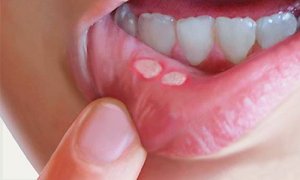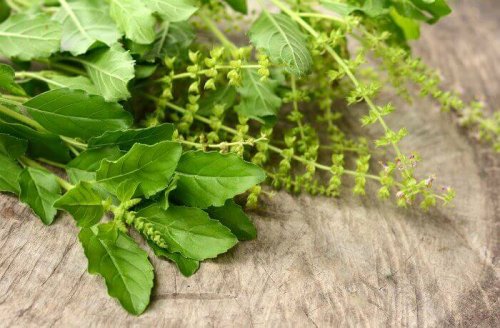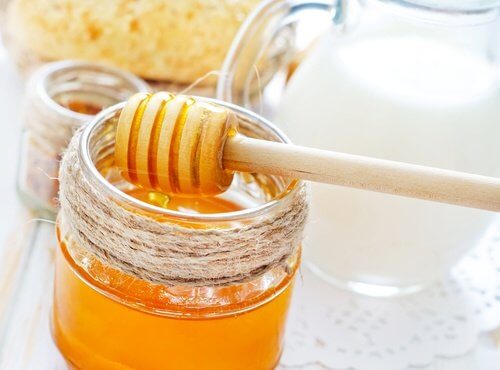Home Remedies to Cure Mouth Sores

Mouth sores are painful and annoying. They make eating, swallowing and talking uncomfortable. After all, how can something so small be such a pain in the…mouth! Fortunately, there are some good home remedies to get rid of them. So, if this a common problem for you, then read on. In today’s article, we’ll present seven home remedies to treat mouth sores.
However, keep in mind that under no circumstances do these remedies replace any pharmacological treatment prescribed by your doctor. Thus, always consult your doctor before using them to prevent possible adverse effects.
7 home remedies to treat mouth sores

Canker sores, or aphthae, are shallow sores that are “crater-like” and appear either on the tongue or inside of the lip or cheek. According to the U.S. National Library Medicine, they’re often the result of stress, allergies, wounds or hormonal changes.
They can pop up overnight and take a few days to go away. So, to speed up the healing process of canker sores you can use the following remedies at home:
1. Sea salt solution
One of the simplest remedies to cure mouth sores is a solution of water and salt. Sea salt, which naturally contains sodium and other minerals, is a great natural disinfectant, according to this study from the Complutense University of Madrid. Therefore, it’s a highly effective mouth rinse. You can make a powerful healing solution as follows:
Ingredients
- 1 tbsp. of sea salt (15 g.)
- 1 tbsp. of table salt (15 g.)
- 1/2 c. of water (125 ml.)
Preparation
- Firstly, heat the water until it is warm.
- Secondly, add the salt and stir until it blends completely.
- Swish this solution around in your mouth for 30 seconds. Then, spit it out and repeat the process until there is nothing left in the cup.
- Finally, rinse your mouth with warm water.
See also: Ten Benefits of Pink Himalayan Salt
2. Baking soda
A report from the Mayo Clinic recommends baking soda as another practical solution to eliminate cold sores. This is an alkaline base that neutralizes the acidity in your mouth, which is what’s responsible for these annoying ulcers. In fact, the sores disappear pretty quickly after one application.
It also acts as a general mouth cleanser by killing any bacteria that may be present in it. However, be sure not to use it too often because it’s a mild abrasive that can damage your enamel.
Ingredients
- ½ c. of water (125 ml.)
- 1 tsp. of baking soda (7 g.)
Preparation
- Firstly, heat the water until it’s warm.
- Next, add the baking soda and mix it well until it dissolves.
- Finally, swish the solution around your mouth several times.
After performing this process, you should rinse your mouth again with regular tap water. Baking soda accelerates the healing process and you should see results almost immediately.
3. Basil for mouth sores

A relative of mint, basil is a natural ingredient widely used in the field of dentistry. This is because, as this study from the Food Industry Research Institute in Cuba shows, it’s an antimicrobial agent. As you can imagine, it’s a great treatment against infections.
To cure mouth sores with basil, simply eat it. In addition, you can include it in your regular diet to aid in the prevention of oral infections. Or, you can make a mouth rinse by boiling the leaves in water.
Ingredients
- ½ c. of basil leaves (80 g.)
- 4 glasses of water (1 L)
Preparation
- First, boil the water along with the basil leaves.
- Next, let it steep and store it in the fridge.
- Then, gargle or rinse your mouth with it twice a day.
This infusion will allow you to speed up the healing process of your sore. In addition, you can use it as a mouthwash routine as a preventive measure. After all, prevention is always better than a cure!
4. Chamomile infusion

A study from the Shahrekord University of Medical Sciences in Iran found that chamomile is a natural antiseptic that works towards the healing of mouth sores. In the same manner, chamomile can also be used as a preventive measure to reduce the unwanted appearance of these sores.
Ingredients
- 1 chamomile tea bag or 2 tbsp. (30 g.) of dry chamomile
- 1 c. (250 ml.) of water
Preparation
- Place the chamomile in boiling water and let it steep until it turns yellow.
- Then, let it cool down.
- Next, use this liquid to gargle and spit it out.
If you use chamomile flowers from your garden for this infusion, be sure to dry them first.
5. Aloe vera
A study from the Amalia Simoni Argilagos Camaguey Provincial Clinical Teaching Hospital in Cuba found that one of the properties of aloe vera is it has regenerative skin properties. This works against many diseases and their symptoms, such as the ones that lead to mouth sores. Furthermore, you can speed up the healing process and clear the pain just by using the viscous liquid of this plant.
Fortunately, this plant is very easy to obtain and process. So, make the following to use it as a home remedy to treat mouth sores:
Ingredients
- Aloe vera
Preparation
- Firstly, cut a little piece of aloe.
- Then, extract the gel with a spoon.
- Next, pat the sore area dry.
- Then, apply it directly to the affected area.
This process can be a little uncomfortable but you must repeat it as often as you can. It’s important to clean the aloe vera really well to get rid of any potentially harmful toxins.
You might be interested: Top Five Aloe Vera Health Benefits
6. Honey

Honey might just be the sweetest remedy you’ll find to efficiently get rid of mouth sores. According to a study from the Cira Garcia Central Clinic in Havana, Cuba the healing process can be sped up thanks to its many natural antibacterial properties.
In order to use honey as a home remedy to treat mouth ulcers just clean and dry the affected area, and apply a little honey. That’s it!
7. Coconut oil
This is one of the oldest remedies used in the treatment of canker sores. This is because coconut is a natural anti-inflammatory that reduces pain and swelling, according to this study from The Himalaya Drug Company (India).
Firstly, using your finger, apply a little bit of this oil on a clean and dry sore and then, let it do its thing for a few minutes. Finally, rinse it with water until there’s no residue of it in your mouth.
Other ways to cure mouth sores
In addition to the above-mentioned remedies, there are multiple techniques that help heal mouth sores. Most of these are aimed at reducing pain and promoting healing. Thus, some of the main techniques you can use are:
- Apply an over-the-counter analgesic compress or gel.
- Use antiseptic mouthwash.
- Use a soft-bristled toothbrush.
- Place ice cubes on the sore.
- Take vitamin B12 and zinc to strengthen your immune system.
- Avoid overly acidic, salty, or spicy foods.
Useful remedies for mouth sores
As you can see, there are a lot of useful remedies to cure mouth sores. Furthermore, it’s important to note that none of them will lead to the immediate disappearance of the cold sore. However, they’ll relieve the symptoms and accelerate the healing process.
Finally, always consult a doctor if you have this problem often, if your sores are large or don’t heal within a few days. This kind of professional is usually qualified to indicate the best course of action and prescribe the appropriate treatment.
All cited sources were thoroughly reviewed by our team to ensure their quality, reliability, currency, and validity. The bibliography of this article was considered reliable and of academic or scientific accuracy.
- Miraj, S., & Alesaeidi, S. (2016). A systematic review study of therapeutic effects of Matricaria recuitta chamomile (chamomile). Electronic Physician, 8(9), 3024–3031. https://doi.org/10.19082/3024
- Crespo Rioboo, M., & Bascones Martínez, A. (2011). Aftas de la mucosa oral. Avances En Odontoestomatología, 27(2). Retrieved from http://scielo.isciii.es/pdf/odonto/v27n2/original1.pdf
This text is provided for informational purposes only and does not replace consultation with a professional. If in doubt, consult your specialist.








